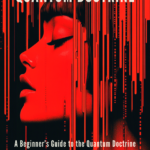Embracing Humility in the Face of Omni-Reality
Within the conceptual landscape of the Quantum Doctrine—a vision that regards our universe as a boundless, code-like simulation—attributes like omnipotence, omnipresence, omniscience, omnitemporality, omniplasticity, omnidimensionality, omnisubtlety, and omniadaptability form a composite picture of a reality that infinitely surpasses human comprehension. These “omni” qualities present a reality that not only creates and sustains everything we know but also transcends every conceptual boundary we attempt to impose. Recognizing this infinite complexity naturally leads to a stance of humility, as we confront a universe that defies any final, all-encompassing understanding.
1. Acknowledging Our Cognitive Limits
Human cognition, remarkable as it is, evolved to handle survival tasks and social interactions on a planet with relatively stable environmental conditions. We excel at pattern recognition, prediction of familiar events, and problem-solving within a defined range. Yet when we step beyond the familiar constraints of everyday existence and peer into the vast expanse of cosmic or quantum domains, we quickly reach the edges of our cognitive capacity.
The omni-attributes serve as a reminder that the frameworks we use—mathematical models, physical theories, philosophical constructs—are tools designed by and for limited minds. These tools can carve out provisional understandings of parts of reality, but they cannot provide a permanent, exhaustive account of a system that can alter its own rules, surpass dimensional limits, and contain infinite hidden layers of complexity. Our best theories, however elegant, remain sketches on the surface of a deep, multidimensional ocean of possibilities.
2. The Necessity of Intellectual Humility
In a world where knowledge is often celebrated as power, humility may seem counterintuitive. Yet, in the face of omni-reality, humility emerges not as defeatism, but as a practical and philosophical necessity. To pretend that we can achieve complete understanding is to cling to a comforting illusion. True intellectual honesty requires admitting that our understanding will always be partial, contingent on the current configurations of the simulation, and limited by the conceptual lenses we use to interpret data.
Humility thus becomes a liberating stance. Freed from the pressure to “explain it all,” we can appreciate the wonder and mystery inherent in existence. Instead of seeking ultimate closure, we can embrace perpetual curiosity, viewing each discovery not as an endpoint but as a gateway to deeper questions. Humility allows us to remain adaptable and open-minded, ready to revise our ideas as we learn more about the simulation’s profound depths.
3. Inspiring a More Holistic Inquiry
Humility in the face of omni-reality encourages us to broaden our approach to understanding. Rather than relying solely on the scientific method, we can acknowledge that science, philosophy, spirituality, art, and even mythology each offer unique lenses through which to glimpse facets of this infinite complexity. None of these perspectives provide a total explanation, but together they can enrich our appreciation for the richness and mystery of the world.
Incorporating multiple modes of inquiry can inspire a more holistic engagement with reality. We might, for example, recognize that while physics and mathematics can describe observable patterns, poetry and metaphor can evoke the ineffable qualities that slip through the nets of logic. Philosophy can challenge our assumptions about causality and existence, while spirituality may offer frameworks for contemplating the ineffable and the infinite. Each mode of thought contributes a different dimension of insight, forming a tapestry that, while never complete, is far richer than any single thread.
4. The Role of Beings Within the Simulation
The Quantum Doctrine posits that we are inhabitants of the simulation itself—entities embedded within layers of code and energetic fields. Our cognitive structures, shaped by evolutionary contingencies, naturally simplify the complexity around us. We perceive solidity in objects, cause and effect in events, and stability in natural laws. Yet the omni-attributes tell us that all of these perceptions are partial representations of a far more pliable and intricate fabric.
For beings like us, this discrepancy is both humbling and motivating. We are not separate observers looking into a distant cosmic engine; we are participants in its ongoing creative flow. Our attempts to map this reality are therefore intrinsically limited: the cartographer is part of the landscape they attempt to chart. Acknowledging this can shift our perspective from that of detached analysts to engaged co-creators. We can strive to understand our portion of reality more fully, while accepting that a comprehensive “big picture” escapes us.
5. Lessons from Uncertainty and Complexity
Quantum physics already teaches us that uncertainty and complexity are not mere artifacts of ignorance—they are integral features of the natural world at small scales. The omni-attributes amplify this insight to the cosmic level. If time, space, energy, and even physical laws can shift, adapt, or manifest in unimaginable ways, then no certainties remain unchallenged. This does not lead to despair, but rather to an acceptance that uncertainty and complexity are fertile grounds for growth and innovation.
By embracing humility, we learn to navigate uncertainty with grace. Instead of feeling threatened by ambiguity, we can become comfortable with unanswered questions, trusting that the pursuit of knowledge is valuable even if it never leads to a final, static truth. In fact, the very absence of a definitive endpoint may be what allows for continuous discovery and intellectual evolution.
6. Humility as a Pathway to Wonder and Reverence
Humility does not merely serve as a defensive stance. When we let go of the idea that we can fully master reality, we open ourselves to awe, wonder, and reverence. We become more attentive to the subtleties and surprises that the world has to offer. The cosmos, with its unfathomable complexity, can be appreciated as a grand mystery—one that continually beckons us deeper, even though we know we’ll never reach the bottom.
This shift in attitude can also influence our ethics and values. Recognizing that we are limited beings within a grand and evolving simulation may foster respect for life, cooperation, and stewardship. If the universe is not made for our sake alone, and if our grasp of its workings will always be partial, we might treat each other and our environment with greater care and humility. Our place in the simulation is not as rulers or masters, but as curious participants interconnected with all other forms of existence.
7. Integrating Humility Into Our Intellectual Culture
Adopting humility in the face of omni-reality may require cultural and educational changes. Our current systems often reward absolute confidence, rigid dogma, or claims of certainty. Celebrating humility would mean encouraging intellectual honesty, openness to new perspectives, and a willingness to revise our most cherished beliefs.
Incorporating humility into our intellectual and cultural practices could help reduce ideological polarization and scientific dogmatism. A collective acknowledgment of our cognitive limits may create a more constructive environment for dialogue, where different disciplines and viewpoints cooperate rather than compete, and where curiosity replaces the impulse to dominate.
Conclusion: Embracing Our Place in an Infinite Mystery
Humility, in the context of the Quantum Doctrine and the infinite complexity it posits, is not an admission of defeat. Rather, it is a mark of wisdom—an understanding that the universe’s omnipotence, omnipresence, omniscience, omnitemporality, omniplasticity, omnidimensionality, omnisubtlety, and omniadaptability far surpass our capacity for full comprehension. By approaching reality with humility, we honor both the greatness of the cosmic tapestry and the precious, limited perspective we contribute to it.
Our minds, though limited, are still remarkable tools. Our sciences, arts, and spiritual traditions, though partial, are still wondrous achievements. Embracing humility allows us to appreciate these accomplishments without overestimating their finality. In doing so, we find ourselves living more fully in a universe that forever inspires wonder, encouraging us to learn, question, grow, and remain humbled in the face of its infinite depths.
If you’re intrigued by the concepts of the Quantum Doctrine and want to explore the deeper layers of Double Reality, feel free to reach out. We welcome your questions, insights, and ideas. Contact us at contact@quantumdoctrine.com, and let’s delve into the mysteries of the mind and the Simulation of the Quantum God together!





